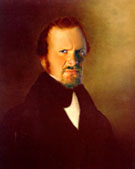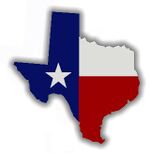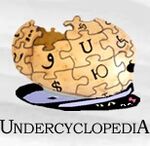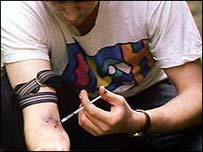Austin, Texas
“One of the most fun and diverse cities in the world.”
Austin is the capital of Texas. It is also known as the ATX. (Especially the underground and the underworld.) It is the home of the University of Texas, (UT), the largest university in Texas, and the seat of Travis County.
History[edit]

The capital of Texas was moved to Austin when everyone agreed that not every city in the country was worth living in. Austin was founded by Stephen F. Austin (pictured) and Sam Houston after a beer-drinking contest. But Sam Houston got pwned and ran east of the ATX to what is now a mess, Houston, to build his own metropolis because he was SO drunk at the time. In 1998, Austin became the "Live Music Capital of the World" with over 238,000 yuppie fans.
Music[edit]
Rap-Rock/hip-hop was founded as Austin's signature musical genre in 1990. Fans argue that there is TOO Much country music for your grandparents, and not enough hip-hop/rap for the underworld and teens. What about the children? They got rock music, rock is very great. (Even if country music is boring and this is not enough hip-hop/rap to go around.)
Technology[edit]
By 2000, it became known as the "Computer City" of Texas, competing against California using IBM, Dell, Microsoft, and Sun, the leading creations made Apple, Microsoft Windows, UNIX, LINUX, and MS-DOS what they are today. They are still civil rivals to this day.
Suburbs[edit]
- Barton Creek — The richest town in Texas and the United States. Home to very aristocratic rich people. 98% to 100.0% of the children attend private schools for weird religions. A LOT BETTER than their other suburb, Lost Creek for the poor in West/Southwest Austin. Filled with White people. Home to many Boarding schools. This neighbourhood has often been criticized for its lack of racial and socio-economic diversity. Due to such factors, the youth are often typecast the stereotypical mold of a "Spoiled Brat" or "Rich Bitch". Just an example of how Barton Creek is detached from the world as well.
- Bee Cave — A village with SO MANY shops. Population is only 1,600 people. Very far West!
- Buda — The town with only 2,000 people. Not to be confused with Butter or Cum. Many trailer homes are inside city limits, so don't live there if you're rich.
- Del Valle — Lot of farms and empty land. The village does not have very many (if not any) rich people and half are poor. Similar to Manor and Elgin. Has Black people and Hispanics.
- Elgin — Sausage capital of Texas. Similar to Manor Has Black people and Hispanics. Northeast of Austin. The village does not have very many rich people and half are poor. Very far East! Elgin has love/hate relationship with Manor.
- Elroy — Home to the largest mud wrasslin' pit in the world, which is currently out of service because we haven't gotten enough rain to make mud. Awesome people with money want to pave the mud wrasslin' pit because racecar. This, of course, pisses off the hippies who moved here from California, as it is the hippies' job to bitch incessantly about anything that happens in ATX.
- Lost Creek — Somewhat similar to Barton Creek, but not as dirty rich. Mainly filed with poor in West Austin. Filled with White people and some Asians. They also have often been criticized for its lack of racial and socio-economic diversity.
- Manor Home to farms and empty land. Similar to Elgin and Del Valle. Has Black people and Hispanics. Northeast of Austin and next to Elgin. They have been gentrified out of existence almost. Manor has love/hate relationship with Elgin.
- Pflugerville — Right next to Round Rock, but not nearly as good because the people are not as rich. They hate Westlake and Cedar Park. They have been gentrified out of existence.
- Rollingwood — A very rich community suburb that is also filled with rich snobby kids who's parents are aristocratic historical rich. Filled with White people and Asians, and a few Indians. Don't speed through there! Rollingwood was also created so that people wouldn't have to deal with the integration of desegregation in Austin, too. They are really their own city. Rollingwood has been honored for having an extremely effective City district administration. Rollingwood is detached from the world just as Westlake Hills is.
- West Lake Hills — Starbucks on every corner. It also known as Westlake. Westlake has been criticized for being racist in the 90's. Westlake does very well both academically and in the Sports department. The cops are the worst pigs out there and will arrest you for smoking heroin inside your car, just to screw with your head. The high school is large with around 2,400 people and class ratios are around 30:1. Everyone is very judgmental, especially if you make less than $100,000 per year. The population actually decreased (increased) between 2000 and 2005 due to an influx of ne'er-do-wells and scallywags. They moved into the upscale Barton Creek subdivision (Lost Creek too) using settlement money received from an industrial waste accident. They buy a nice house and proceeded to fill the yard with three generations of swingsets, Playskool tool kits, kitchenware, and an average of 5 dogs and 6 cats that they refuse to spay and neuter. Happily, this has served asn an excuse for the Travis County Animal Welfare office to increase its staff.
What is Austin like?[edit]
Austin is the Live Music Capital of the World. It is home to many yuppies (20-40) and hippies (420) who attend universities and college. University of Texas at Austin (UT) is also home to psychics, drugs, weed, cocaine, psychos, and school shootings, usually on-campus. The whole city revolves around the economy of UT.
A network of Bat Fuck Insane roadways end abruptly or change names frequently. Consulting a map is pointless. There are too many hills and they are a pain in the ass to climb.
Most notably, it is home to the world's largest singing penis sculpture, which was commissioned by now-legendary Haitian sculptor and hidebound Democrat Party reformer Jean-Claude "Baby Doc" Duvalier. The sculpture, which accounts for roughly 55% of the city's tourism income,[1] is heard all over town belting out local tunes. Its main shaft can be clearly seen from the rooftop at the Whole Foods downtown corporate headquarters.
Is Austin weird?[edit]
"Keep Austin Weird" is the slogan adopted by the Austin Independent Business Alliance to promote local small businesses. The phrase arose from an offhand remark by a librarian at a community college in a phone call to a local radio station. Prior to that, no caller to talk radio had had anything amusing to say. The phrase went onto bumper stickers that were distributed to businesses in Austin that normally would have claimed to be "closed for inventory" if anything even partly weird were going on nearby.
The phrase was "adapted" (without payment of royalties) for use in other cities, such as Portland, Oregon, that are not weird in the least.
Activities and pastimes[edit]
The most popular pastime of Austinites is to just climb into the truck and drive around, even if one has nowhere to go. A "farm-to-market" provision of law in Travis County allows toddlers to start driving at the age of 24 months, to get a feel for the roads.
The most popular destination for these trucks (those that don't simply drive around and around, such as those stuck on Loop 360, which was the first infinite loop of the computer age) is Sixth Street. Sixth Street has bars and clubs. One does not describe one's destination on Sixth Street; one simply "goes to Sixth Street".
The long-term strategy is to get out of Austin, typically by acquiring a trophy wife, getting gentrified, and moving to Round Rock. In contrast, no one goes back to Mexico.
Austin Heroin Festival[edit]
Began in 1967, the Annual Austin Heroin Festival attracts heroin fans and addicts from around the world to celebrate the magical drug and increase public awareness of its versatility and need for legalization. The festival, held in Austin, Texas, every year September 2–6, draws an average attendance of nearly 120,000 people! Not that much rly.
Attendees enjoy carnival rides (such as the Leaning Wall, the Spacey Needle, and the Body Bag Flume), vendors, and exhibitors, who offer the finest heroin from around the world, as well as a peek into the future of heroin production and consumption for weed as well. Local jam bands also contribute to the festive atmosphere, usually playing a bunch of random songs for the entire duration of the event.


